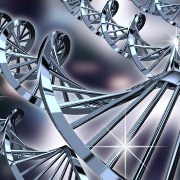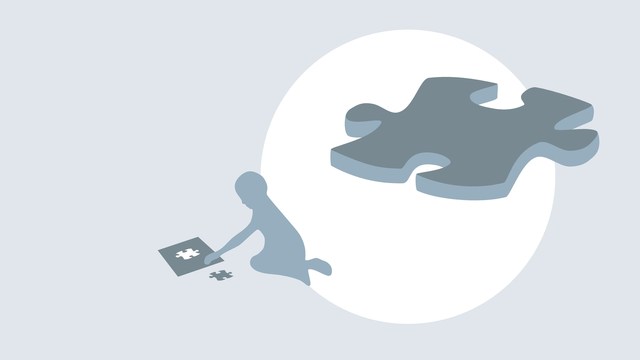 Photo: Getty Images
Photo: Getty Images
Since the 1990s there has been a worldwide explosion in cases of autism. Once a rare neurological disorder that affected only one in 10,000 children, and often from birth, it is now affecting as many as one in 66. Many cases are regressive, where the child is born normally and develops appropriately for his age, then loses previously acquired skills including his language.
Boys are three times more likely to get autism compared with girls. A Cambridge University study in the UK found that one in 40 British boys is autistic or has some form of ASD.
But what causes autism? That has been a question that has been asked since 1943 and scientists aren’t completely sure. In truth, autism is probably caused by a combination of factors.
Helen V. Ratajczak, researcher in the Journal of Immunotoxicology, wrote:
"Documented causes of autism include genetic mutations and/or deletions, viral infections, and encephalitis following vaccination. Therefore, autism is the result of genetic defects and/or inflammation of the brain." (1)
Theoretical causes of autism that researchers have studied so far, include:
Genetic Faults
Some cases of autism are believed to be genetic in origin. Studies of identical twins have shown that if one twin is autistic, the other twin is 90 percent likely to have autism too. Relatives of autistic individuals may have one or more symptoms associated with autism but not enough to be diagnosed with the condition. (1)
Identical twins have the same DNA, though, so they may be susceptible to the same environmental factors and this could account for the high rate of sibling autism.
Other theory is that alterations in gene expression or mutations in genes could be responsible for autism, although no gene has been found to be responsible for autism and some researchers think that genetics do not account for autism because there has been an epidemic increase in cases throughout the world and there is no such thing as a genetic epidemic. (1)
The CDC admitted that genetics cannot account for the increase in cases and many studies of the issue have strengthened this position. (2) The Journal of Epidemiology suggested that the increase in cases was not due to genetics or over-reporting and that chemicals and infectious microbes were a likely cause of the changes in the neurological development of children.
"It's time to start looking for the environmental culprits responsible for the remarkable increase in the rate of autism in California," said UC Davis M.I.N.D. Institute researcher, Irva Hertz-Picciotto. (3)
Metal Metabolism Disorders
Various studies have found that autistic individuals have high levels of mercury and other metals in their blood and urine. A study in 2001 showed that 85 percent of autistic people tested showed elevated levels of metals and 99 percent showed evidence of a metal metabolism disorder. (1)
A study in the International Journal of Toxicology found that autistic infants had reduced levels of mercury in their hair, showing that they had not been able to excrete it as effectively as infants who were neurologically normal.
"Differential rates of postnatal mercury elimination may explain why similar gestational and infant exposures produce variable neurological effects ... The mothers in the autistic group had significantly higher levels of mercury exposure through Rho D immunoglobulin injections and amalgam fillings number of the mothers' amalgam fillings and their fish consumption as well as exposure to mercury through childhood vaccines, correlations that were absent in the autistic group."
So the neurologically normal babies who had been exposed to mercury in the womb via their mother’s fillings or anti-D injections, and after birth in the form of vaccines, had a higher level of mercury showing in their hair. Autistic babies exposed to the same things did not show this same level of mercury because they hadn’t excreted it from their bodies. (4)
Sources:
1. Theoretical aspects of autism: Causes—A review, Journal of Immunotoxicology. Web. 8 September 2011.
http://www.cogforlife.org/ratajczakstudy.pdf
2. Prevalence of Autism Spectrum Disorders --- Autism and Developmental Disabilities Monitoring Network, United States, 2006, MMWR, CDC. Web. 4 September 2011.
http://www.cdc.gov/mmwr/preview/mmwrhtml/ss5810a1.htm
3. Study shows California's autism increase not due to better counting, diagnosis, Physorg. Web. 8 September 2011. http://www.physorg.com/news150636855.html
4. Reduced levels of mercury in first baby haircuts of autistic children, International Journal of Toxicology. Web. 8 September 2011. http://www.ncbi.nlm.nih.gov/pubmed/12933322
Joanna is a freelance health writer for The Mother magazine and Suite 101 with a column on infertility, http://infertility.suite101.com/. She is author of the book, 'Breast Milk: A Natural Immunisation,' and co-author of an educational resource on disabled parenting.
She is a mother of five who practised drug-free home birth, delayed cord clamping, full term breast feeding, co-sleeping, home schooling and flexi schooling and is an advocate of raising children on organic food.
Reviewed September 8, 2011
by Michele Blacksberg R.N.
Edited by Jody Smith





Add a Comment11 Comments
As I said before, one of them was from 2011, they aren't all from 2001. I use studies from all decades. In fact, those in favour also do.
September 12, 2011 - 2:31amThis Comment